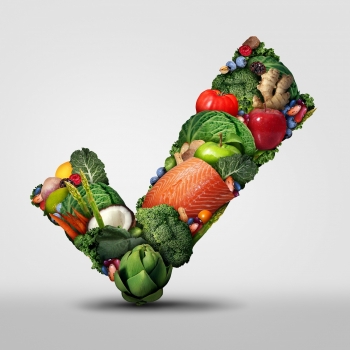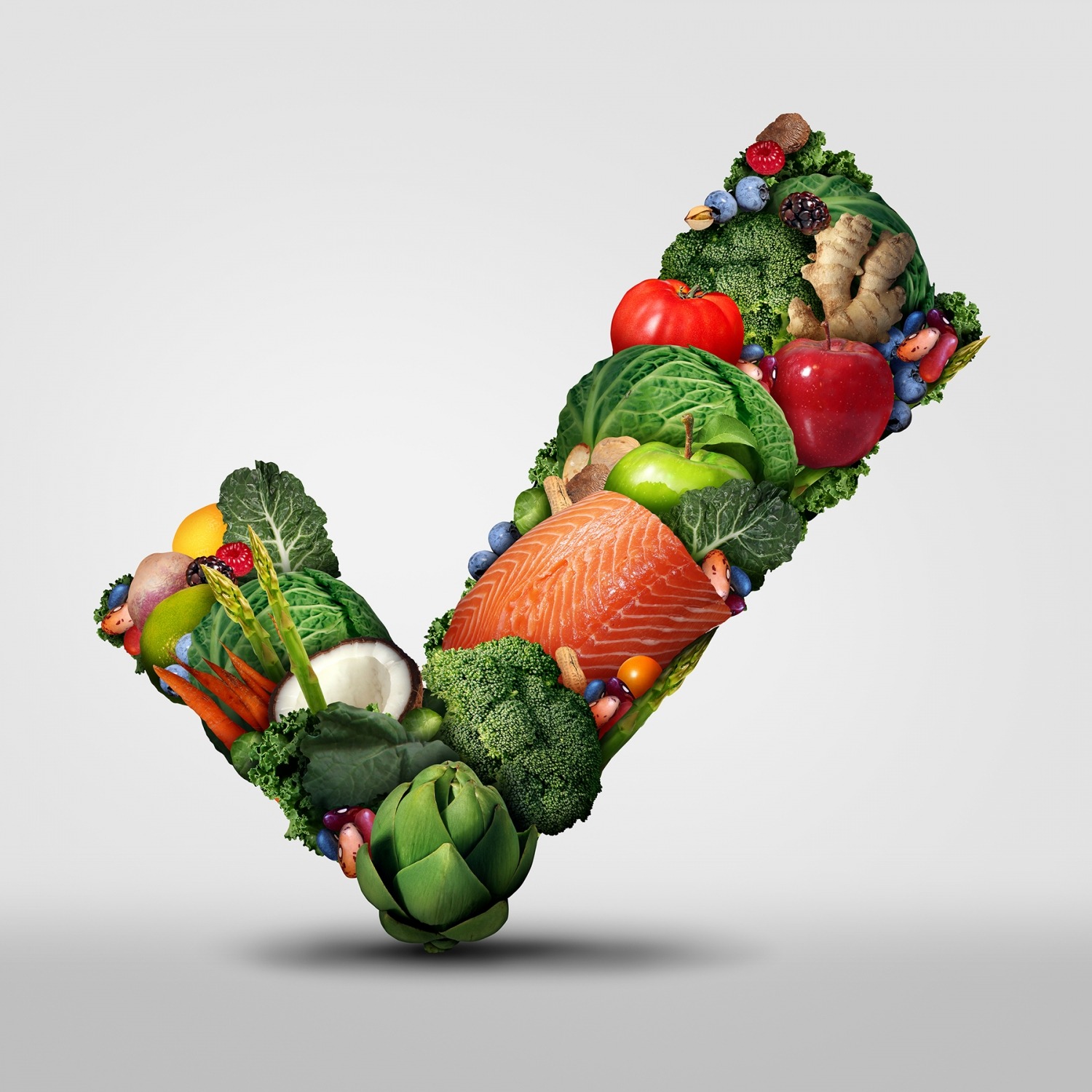
.jpg) Dr. Elsa Lycias Joel
Dr. Elsa Lycias Joel

How safe is our food? For all that we know food safety is a shared responsibility. The journey of food from farms to our plates is an interesting one. From the seeds to the pesticides/fertilizers used to methods of harvesting, cleaning, processing, and storage and cooking, there are various factors that affect the safety of what we consume. No denying, we eat food to live. Yet, it’s horrifying to know that some foods considered to be nutritious actually kill people due to various reasons.
To lift the hygiene and health of our citizens, elimination of trans fats from the food supply chain was focused upon on World Food Day 2021. The then Union Health Minister Dr Harsh Vardhan stated that trans fats is a modifiable risk factor for cardiovascular diseases (CVD) and eliminating CVD risk factor is relevant at all times. He went one step ahead and reminded everyone of the government’s effort to make India trans fat-free by 2022.
Here we are in 2022 with another theme and least bothered about the trans fat products overflowing in supermarket shelves and in our homes. Poster, photography and elocution competitions on healthy dietary habits on one particular day do not promote good habits or create a ‘Fit India’. Let’s assume we shun all packaged stuff and turn to field grown food. We must know that we rank second in the world and first among the South Asian Association of Regional Cooperation (SAARC) countries in terms of total fertilizer consumption.
Coming to pesticides, so much noise is heard about banning or keeping it on hold. And 20,000 people die of pesticide poisoning annually in India. Pesticides kill pests and for sure kill humans too by causing leukemia, lung cancer and non-Hodgkin’s Lymphoma. If the government is concerned about producing safer food, why are certain pesticides that are banned in developed countries are used in India? Logically flawed is the argument that methyl parathion could cause cancer in farm workers and pesticide applicators and not in people who consume the products of agricultural crops.
The farmer serves creation. So, his well being should be of prime importance too. Of course, there is need for more food in our country. That doesn’t mean pesticides that need banning can be used to make more unsafe food. As much as an agricultural land is viewed as a means to profit, we must also consider it as a resource entrusted upon us and long-term health of the land should be our utmost priority.
While world food day is celebrated worldwide making it one of the most celebrated UN days, food inflation is having a devastating impact on poor families. Sadly, India is home to the largest undernourished population in the world and thankfully it’s not among the top ten hungriest countries. Food insecurity and hunger will continue to plague India because the idea of shared prosperity looks like a myth.
Every year, events and outreach programs chaired by Ministers do happen on October 16. But programs and promises don’t see the light of day. Nothing is followed up or carried forward in the right spirit and motive. Indian leadership stands apart for they created one of the largest sustained protests the world and our country has seen in decades. The protest persisted through steady rains, horrible heat waves and hundreds of deaths. In the words of Vikas Rawal, a professor of economics at Jawaharlal Nehru University, farm laws are a shoddy attempt at liberalization enacted without thinking of farmers’ welfare and country’s future.
We never fail any celebrations, do we? During the corona pandemic, when the people who grow our food were choking highways in giant demonstrations against new farming laws, the Prime Minister dutifully observed world food day by releasing a commemorate coin of Rs. 75 denomination. Whether he took the theme of world food day 2020 seriously is anybody’s doubt. The theme was “Our actions are our future -- Better production, better nutrition, a better environment and a better life”.
The Prime Minister also dedicated 17 newly-developed biofortified varieties of eight crops to the nation. On one hand, the food growers were in utter distress in 2020, on the other hand the PM and his team celebrated world food day. Call it irony! 2021 highlighted the theme, “Safe food now for a healthy tomorrow” in order to encourage those who have created sustainable surroundings where no one is left hungry. Again, trans fat and its elimination was much discussed and nothing aimed at protecting farmers. Ten days after the world food day was celebrated in 2021, Neel Kamal reported in the Times of India that 600 activists had died in 333 days and the protest was still going on. “There is food for everyone on this planet, but not everyone eats.”
Isn’t it very crucial to take steps to avoid food wastage? As per the reports of UNEP, in 2019 the total food wastage in India was 931 million tonnes of which 61% came directly from households, 26% from food services and 13% from retail. Let ‘Sab ka chawal’, ‘Anadhanam’, ‘I am feeding India’, ‘Indian Food Sharing Alliance’ and the like do their bit.
But, raising awareness and bringing about an attitudinal shift towards food wastage must first begin in our homes. My daughters think hard before trashing food and they will never do it, not because they are saints but because I’ve done my duty as a responsible parent.
Our dining table conversations revolve around farmers, starving families, homeless and less fortunate kids, who can’t be choosy about food and why we should be responsible enough and sensitive enough to care and share. When they were much younger and whenever their lunchboxes came home half empty, I took it upon me to help them polish off the leftover food they failed to eat during the lunch break. I’ve never let them appreciate picky eaters or anyone who takes food for granted.
Train children to start with smaller portions to combat fussy eating. At least once in their life time your child should visit a farm to know the hard work that is put into the job in spite of the farmer not getting what he deserves. Then, they will realize every grain of rice matters. My humble request to all parents out there is just help kids understand that wasting food is immoral and so is harming our bodies with unsafe junk.
“When you see one who has more, look to one who has less,” said Prophet Muhammad. Fataawa al-Lajnah al-Daa’imah (22/341) says: Leftover food must be saved for the next time or it should be given to the needy; if there are no needy people, then it should be given to animals, even after it has dried out, for the one who is able to do that.
All scriptures condemn wasting food and exploiting resources. India, known for its diverse and devout population will do better if people turn to scriptures for the right cause. The Bible says ‘gather the pieces that are left over. Let nothing be wasted’ was Jesus’ request to his disciples after all of them had enough to eat.
Food and better health are our right and responsibility. I agree that certain things are possible only with good policies and enforcement. India has the largest food schemes in the world, yet food insecurity and hunger continue to stare us in our faces and we know the reason. Which normal person can think of cheating the hungry? The number of vigilance cases registered against the officials of Food Corporation of India stood at 406 for the year 2020-21. Let’s not assume all foods approved by FSSAI are safe because its vigilance division seems super busy.
World Food Days will come and go. We must trust our intuitions, gain knowledge about food, support local farmers, probably make use of our resources, limited or plenty, to grow some safe food, advocate healthy eating and lend a hand to food activists.